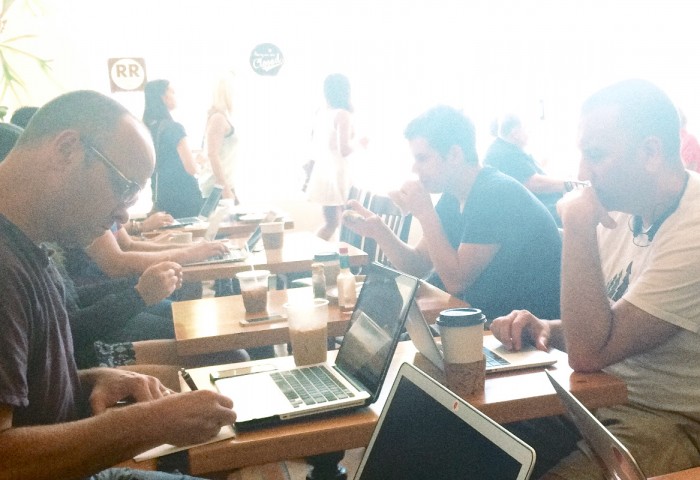This article was produced by AND CO, the app that automates freelancers’ administrative tasks.
Every new generation shifts away from the way things were done in the past, and not just in clothing styles and music. The experiences of a generation as they come of age shape how they see the future. We’re seeing this right now with the Millennials and the future of work.
A century ago, labor unions fought hard to get an 8-hour workday. You’d give 8 devoted hours to your employer, you got 8 hours for yourself, and then 8 hours of healthy sleep. A nice division, but it’s breaking down and sending ripples through culture and economics. Why? Here are a few reasons.
Millennials Value Flexibility and Autonomy
The Millennials came of age in an era of great uncertainty and broken promises. They hit the job market at the tail end of the Great Recession. School and culture might teach you that if you work hard your employer will reward you and keep your job, the experiences during this era showed that this is no longer the case.
Millennials have been forced to rely upon themselves, and they’re asking for it boldly in the workplace. They want flexible schedules and the ability to coordinate their own lives rather than being placed under the rule of a boss. A Millennial Branding report from 2013 revealed that 45% of Millennials will choose flexibility in working hours over pay, and 60% of them don’t stay with a job for longer than three years. The old promise of company promotion and benefits in exchange for loyalty doesn’t hold water.
This is forcing companies to adjust fast because it costs a lot to have that much turnover. Freelancing, temp work, and other flexible ways of filling positions are becoming more popular. Some are going the 10-4 route of working ten hours four days a week, while others are allowing completely flexible schedules, so long as the work gets done. The key to that kind of flexibility is technology.
Technology Opens New Roads
Technology has made it possible to break out of the 9 to 5 mold, and the Millennials are remarkably technophilic. But it could be leading to increased workaholism. A CareerBuilder survey that studied 1,000 professionals in IT, finance, and sales revealed a lot about the behavior of people in these industries. 2 in 5 of them kept working outside of office hours and 1 in 4 did work activities even with family and friends.
Going beyond simple work email, freelancing applications have allowed freelancers to work for companies easier than ever before. Apps like AND CO let users send and pay invoices, and perform many other activities that would have required a standard office.
The mantra of the Millennial is much like the mantra of the freelancer (with the two overlapping in title). Give me work, a deadline, and autonomy and the job will get done. Technology helps keep both sides accountable while allowing work to happen from anywhere at any time. This isn’t just helpful to the Millennial generation, but also to stay-at-home mothers and retirees who want to continue supplementing income, which brings us to our third reason that we’re witnessing the decline in the 9 to 5 mantra.
The Recovery is Still Uneven
Traditional-minded employers may think that the younger generations are just wanting more entitlements, but the evidence suggests that they may be trying to get whatever they can. The unemployment rate for Millennials has been hovering around 12.8%. About 20% of retirees are trying to stay in their jobs either because they need the money thanks to the Great Recession or they want to feel useful. Rising elder health has also let them work longer without causing productivity drains. This has put huge pressure on the job market to cope with the sheer number of people trying to enter. You may not know this, but the Millennial generation is the largest generation in America.
But the Millennials aren’t taking this lack of opportunity lying down. Their needs are driving the innovations in technology and workplace flexibility. They’re forging their own paths and relationships with employers. Conventional wisdom is challenged regularly. This questing and questioning attitude explains why some employers see Millennials as whiny entitled people who don’t want to pay their dues. Millennials, in turn, say that the state of things makes the return they get for those dues not worth the trouble and that they can’t trust the traditional system anyway. The evidence is all around them.
While the 9-to-5 isn’t quite dead yet, there are enormous pressures that are leading it to the grave. As Millennials continue to rise into positions of authority, we can expect to see a continued decrease in the traditional work day. Studies are suggesting that allowing people to work on their own schedules does increase productivity. But will we suffer from the freelancer feeling of never being quite off the clock? Does flexible working hours lead to an increase in how much we work? Time will tell from that.



Responses